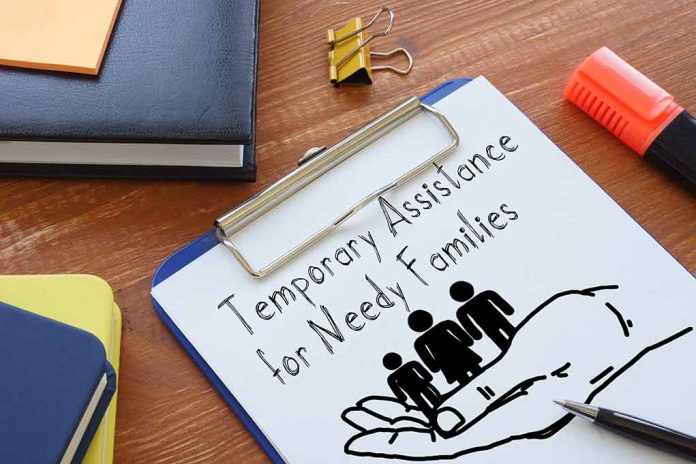
Need Short-Term Financial Relief? TANF Has Your Back
(UnitedCause.com) – The Temporary Assistance for Needy Families (TANF) Program is housed within the Office of Family Assistance under U.S. Department of Health and Human Services and provides cash benefits for needy families. While each state is responsible for designing its own TANF program and determining the types of benefits and services that are provided, here is a brief look at the overall goal of the program.
What Is the TANF Program?
TANF is a federally funded program that aims to achieve four goals:
- To provide assistance to needy families so that children can be cared for in their own home or in the homes of relatives.
- To end the dependency of needy parents on governmental benefits through the promotion of job training, work, and marriage.
- To prevent and reduce the number of out-of-wedlock pregnancies.
- To encourage two-parent families.
In addition to providing time-limited cash payments to assist needy families in paying for their monthly living expenses, many state TANF programs also offer services including job training, assistance finding a job, and assistance with childcare. Federal TANF funds are provided to the states through fixed block grants. In order to obtain these grants, the states must also demonstrate their own commitment to the program through what is known as “maintenance of effort” spending.
Who Is Eligible for Assistance Through TANF?
In order to be eligible for TANF assistance, applicants must show that they have a low or very low income, that they’re unemployed or underemployed, and either be pregnant, have a child that is 18 years old or younger, or be 18 years old or younger and the head of the household. The original law that created the TANF program in 1996 included a lifetime ban on benefits for anyone who was convicted of a felony drug charge. However, states have leeway to lift this ban through legislation. Most legal immigrants must be in the U.S. for at least five years before they are eligible for benefits, including cash assistance as well as transportation, job preparation or assistance, and childcare assistance. Non-custodial parents who are participants in the TANF program are required to cooperate with child support enforcement efforts or risk the loss of benefits.
Will TANF Participants Lose Their Benefits If They Work?
One of the main purposes behind the TANF program is to support and encourage Americans to work and to assist them in developing the skills they need to obtain a job that can support themselves and their families. TANF benefits are time-limited, meaning the assistance is only provided as a means for participants to obtain work and become self-sufficient. States are required to demonstrate that the participants of their program are participating in work activities. Federal law requires states to engage at least half of all TANF families with one work-eligible individual and at least 90% of all two-parent TANF families with two work-eligible individuals to engage in work or work-related activities for a minimum amount of hours each month.
Other Sources of Assistance for Americans in Need
TANF is a crucial — albeit temporary –safety net for needy families, providing cash assistance as well as work preparation, job location, and childcare assistance. There are several other programs that also provide assistance for needy families, including:
- The Section 8 Housing Voucher program, which provides rental assistance.
- The Supplemental Nutrition Assistance Program (SNAP), which offers cash assistance with grocery costs.
- The Child’s Health Insurance Program (CHIP), which offers free or low-cost medical and dental insurance for uninsured kids up to the age of 19.
- Head Start, which is a free or reduced program providing early childhood education, health, and nutrition services.
Contact your area Department of Health and Human Services office to find out more about the federal assistance programs available to families in your area.
Copyright 2022, UnitedCause.com










